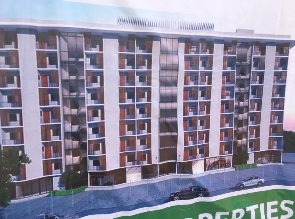Opinions of Tuesday, 27 June 2023
Columnist: Musah Ibrahim
The housing deficit in Ghana
Over the years, housing deficit in the country keeps on surging and our governments render lip service in trying to deal with the situation.
Sometimes the statistical data the government provides, relative to some national issues such as the one under discussion, is not very reliable. We must, therefore, be extra careful when we rely on government data to address issues, like the housing sector we are now tackling.
The normal way by which various governments in Ghana have tried to improve the housing shortfall is through building of affordable houses. Building the so-called affordable houses which are meant to alleviate the perennial housing deficit has rather come to aggravate the situation. Our governments have politicized almost every aspect of national issues, so sometimes they do neglect some of the projects they inherited from their predecessors. This attitude is detrimental to our progress.
The hullabaloo about the Sagleme housing project is still fresh in our minds.
Governments invest massively in affordable housing projects with the aim of supporting Ghanaians, who could not afford to buy houses for themselves.
However, when the projects are completed, the cost of the 'affordable' houses is then tagged beyond the affordability of the ordinary Ghanaian worker. The elite and affluent persons in our society eventually purchase houses. Meanwhile, ordinary Ghanaians have, in one way or the other, also contributed to the project(s) by paying taxes.
To me, a more pragmatic approach must be taken to deal with the housing problems rather than the way we see it being handled unfairly. I envisage a more serious housing deficit problem in the near future if we fail to expedite action now to address the issue thoroughly. In Accra, in particular, rent charges for accommodation are very expensive.
We started to encounter more housing deficits when Ghanaians living and working in Nigeria were deported to Ghana in the early eighties. Before the deportation, Accra was not densely populated. Large tracts of land were then available for sale in the suburbs of Accra. People have acquired some of the lands to build their house(s) and move in or rent them out.
Real estate developers and individual landowners, who build houses for rental or for sale have played a significant role in solving some of the issues confronting the nation in the housing sector. Land guard issues have, in many ways, obstructed the efforts being made by the landowners and the estate developers in that direction.
If our governments are really serious about the affordable housing project, they must remove all the impediments that surround it and execute it genuinely to make it benefit all Ghanaians. It seems to me like those in authority may have carefully planned and introduced this housing project so that in the end it shall benefit them and their friends. Otherwise, how can a low-income earner, like most Ghanaians, be able to afford to buy these expensive houses?
There are other different ways the government can use to help to improve the housing problem.
If the government(s) adopts prudent measures which radically stop the activities of land guards who illegally harass those who build on the land(s) they have acquired genuinely, it will go a long way to encourage these people to build houses that may ease the burden on the housing deficit.
Again, the institutions which provide permits for landowners to be able to develop their lands must be talked to, to work diligently. Their task forces are also making problems for the landowners.
Some other factor impeding the rapid growth in the housing industry is the cost of building materials.
The government can do more to help to ameliorate the situation!













